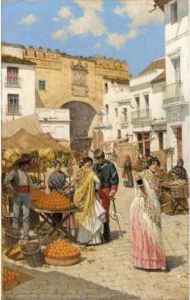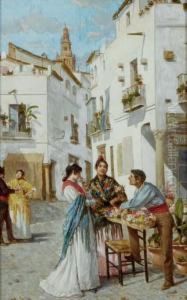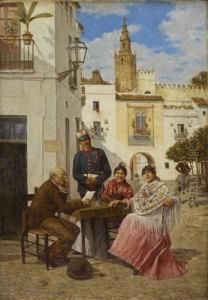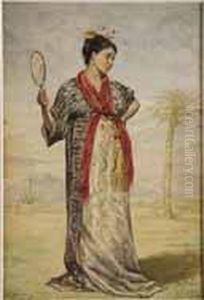Joaquin Turina Y Areal Paintings
Joaquín Turina y Areal was a prominent Spanish composer of classical music, born on December 9, 1882, in Seville, Spain. His life and work were deeply influenced by the rich cultural heritage of his homeland, particularly the music of Andalusia. Turina is considered one of the key figures in the Spanish musical renaissance of the early 20th century, alongside contemporaries such as Manuel de Falla and Isaac Albéniz.
Turina's musical education began in his native Seville but reached a pivotal moment when he moved to Paris in 1905. There, he studied composition with Vincent d'Indy at the Schola Cantorum de Paris and was influenced by the modernist movements of the time, as well as by fellow Spanish composers who were also in the city. Despite these influences, Turina's work is deeply rooted in Spanish folk music traditions, incorporating elements of flamenco and Andalusian folk melodies into his compositions.
Throughout his career, Turina composed a wide range of music, including orchestral works, chamber music, piano pieces, and vocal music. Some of his most celebrated compositions include 'La procesión del Rocío' (The Procession of El Rocío), 'Sinfonía sevillana' (Sevillian Symphony), and the piano trio 'Círculo,' which reflects the cyclical nature of life. His music often evokes the landscapes, traditions, and legends of Spain, blending impressionistic techniques with nationalistic themes.
Turina's contribution to Spanish music extended beyond composition. He was an active music critic and educator, promoting Spanish music and culture throughout his life. In 1931, he was appointed professor of composition at the Madrid Royal Conservatory, a position he held until his death. Turina also wrote extensively about music, including essays and articles that highlighted the importance of national identity in music.
Joaquín Turina y Areal passed away on January 14, 1949, in Madrid. His legacy lives on through his compositions, which continue to be performed and celebrated for their rich evocation of Spanish culture and their place in the repertoire of classical music. Turina's work has helped to define the sound of early 20th-century Spanish music and has left a lasting impact on the world of classical music.



